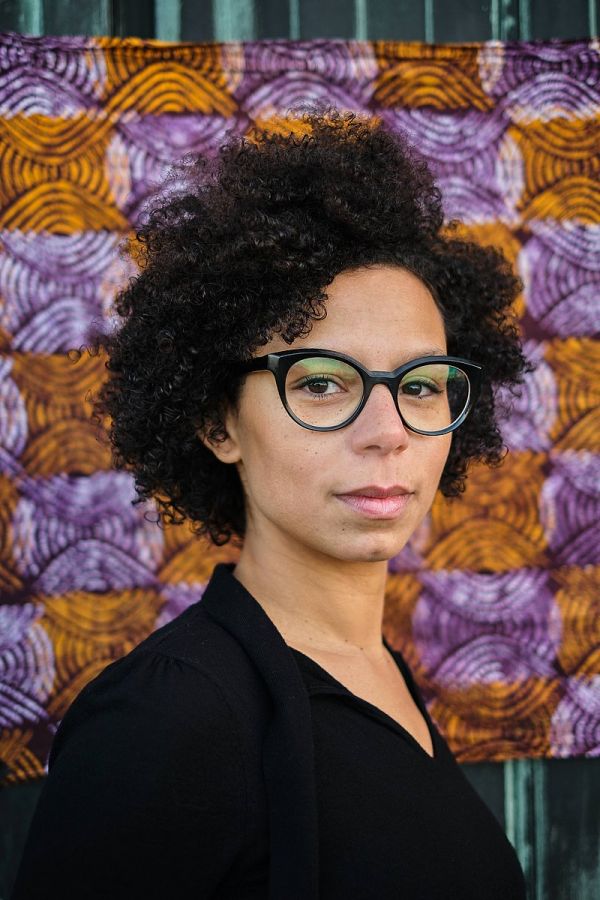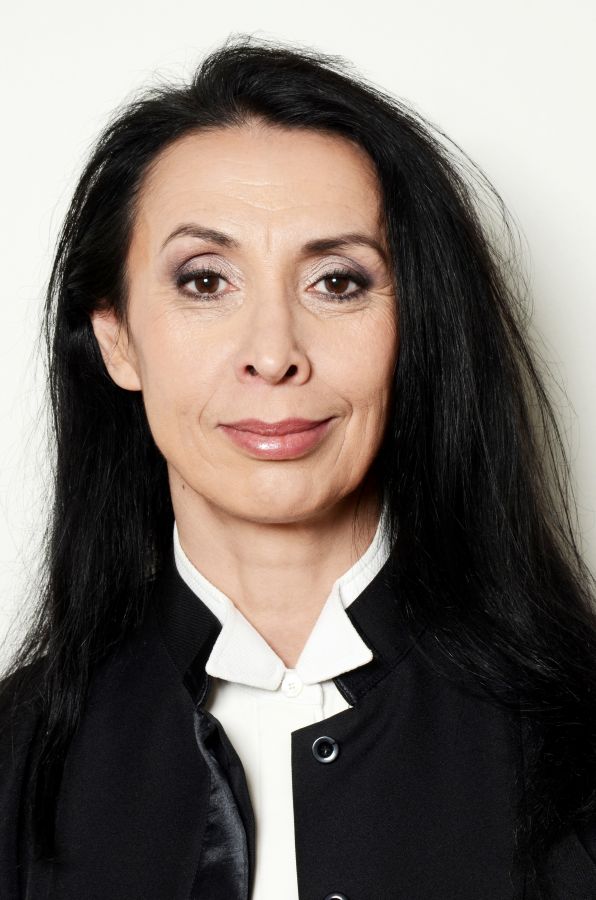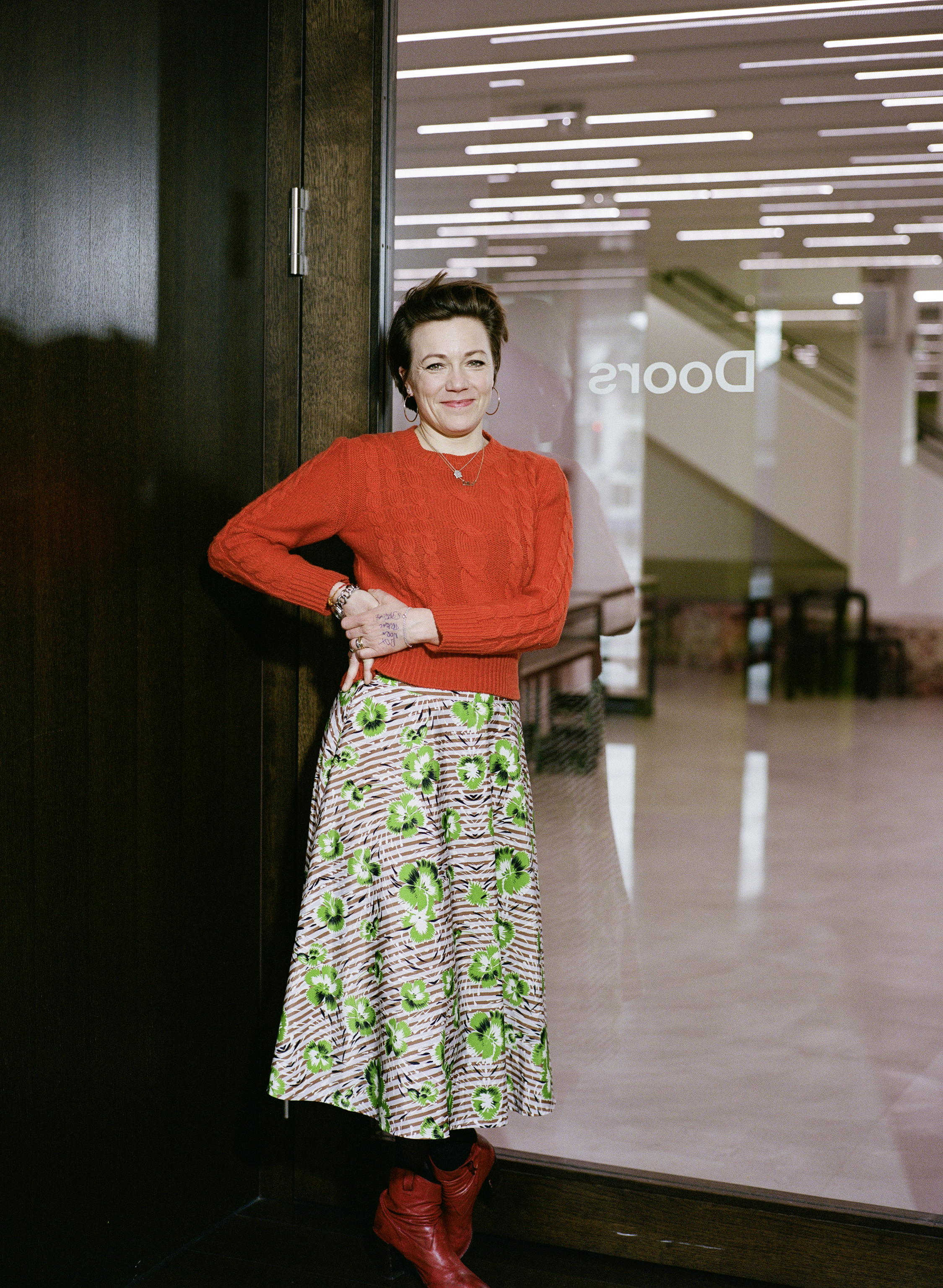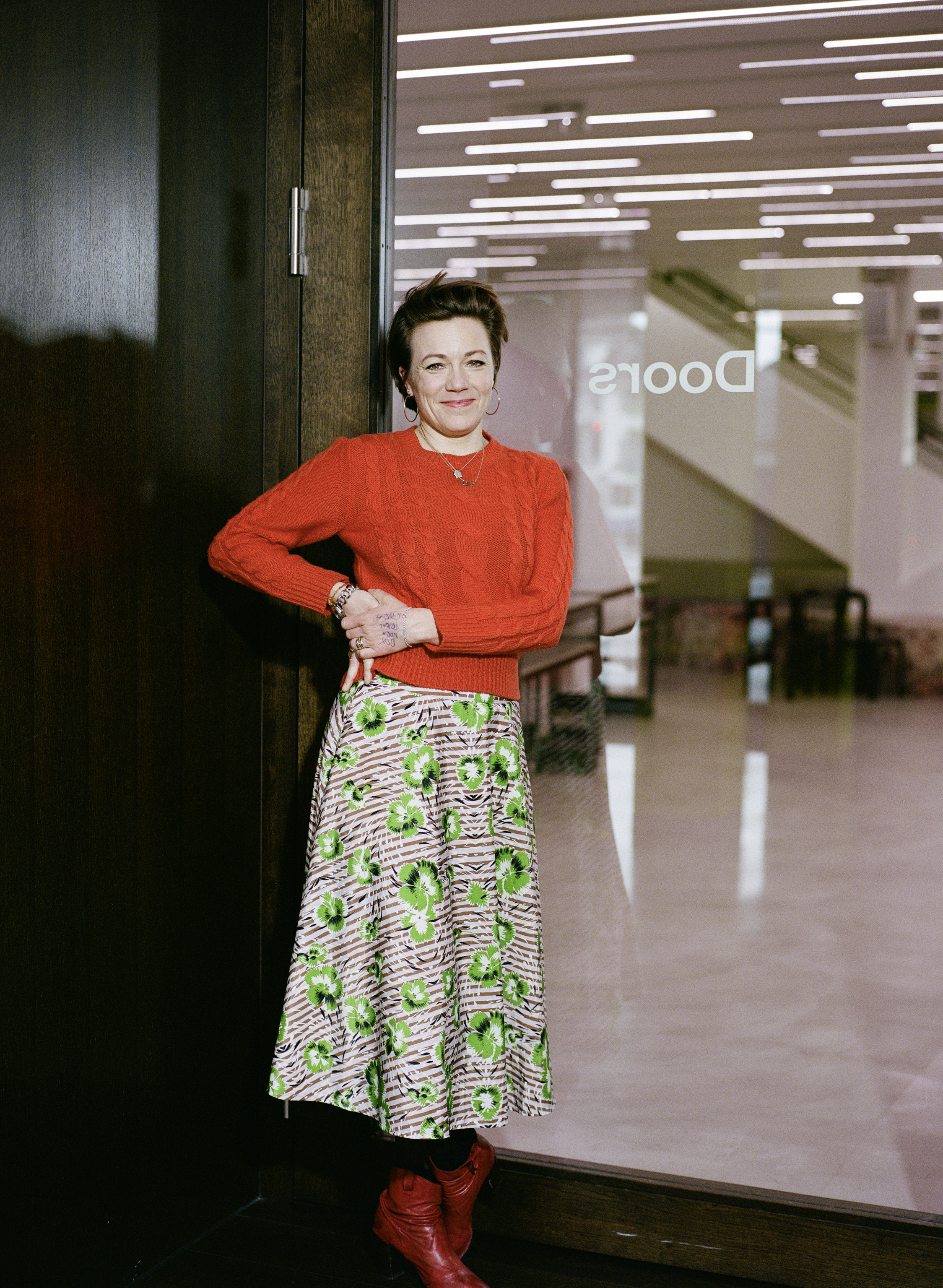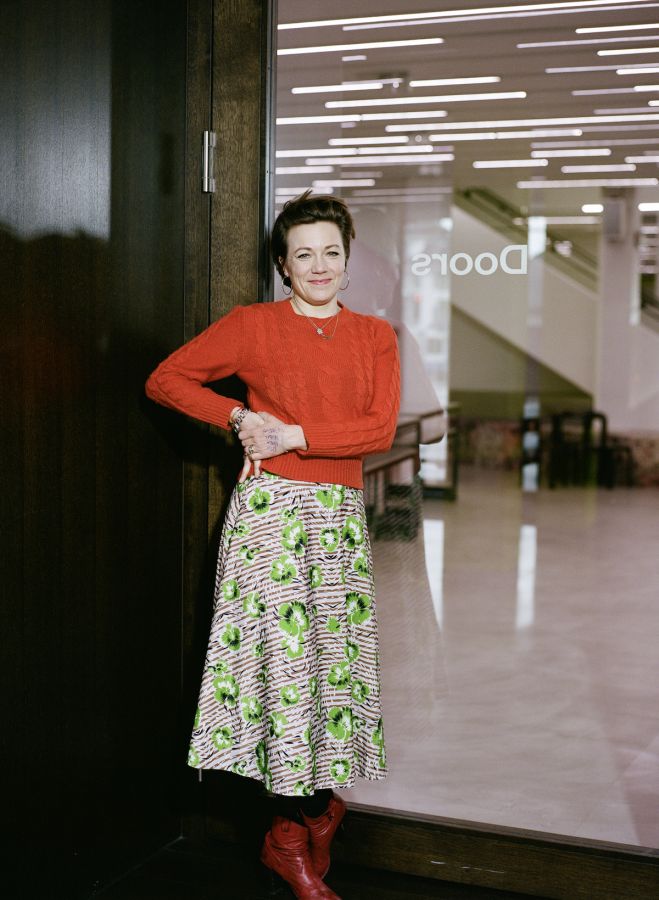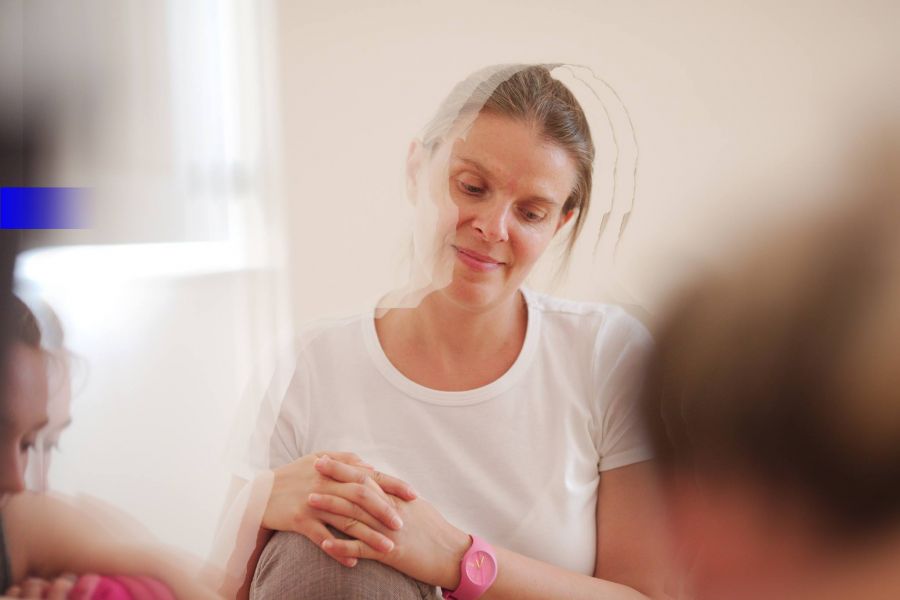May 20th Mon, 10:00 AM – 3:30 PM | Konvikt
CED Talks in cooperation with the Festival Divadlo a diversita II: WOMEN LEADERS
CONFERENCE | CLOSED EVENT
for accreditation fill in this form
The international discussion platform CED Talks THEATRE AND DIVERSITY creates a space for discussion about the current state and conditions of theatre production, which
must be more open to inspirational influences beyond national narratives and at the same time enriched with diverse voices and perspectives of local minorities and communities. An
unmistakable aspect of diversity and a topical issue is also the still insufficient number of women working in leading positions in theatre and cultural institutions, as well as their weak
to minimal participation in similar types of events taking place in the public space and in the media. Regular meetings, sharing and exchange of experience with prominent personalities
– women leaders – from the ranks of the foreign professional public is therefore a substantial support and inspiration not only for their counterparts from the Czech Republic, but also for
the wider cultural and academic community. The initiator and guarantor of the project is the Centre for Experimental Theatre Brno.
The curators of the programme series are dramaturg and translator Viktorie Knotková and director and scenographer Kamila Polívková.
The first edition will take place on 19th and 20th May 2024 in cooperation with the Flora Olomouc Theatre Festival and will focus on the German-speaking environment. The theme is the intersection and interconnection of various cultural influences with an emphasis on „Eastern European“ discourse.
The second part of the CED Talks, THEATRE AND DIVERSITY: WOMEN LEADERS, connects prominent female personalities from the German-speaking and Czech theatre environment. The intendant of the Dortmund Drama Company, Julia Wissert, will meet the director of the X10 Theatre, Lenka Havlíková, and the chief dramaturg of the Zurich Drama, Katinka Deecke, and the dramaturg Sodja Lotker. All four creative producers will present their work and share experiences and topics that connect their professional interests and activities, i.e. especially international and interdisciplinary overlaps. The discussion will also touch on the activities of women in leading positions and the necessary systemic changes that would lead to their greater representation and influence on working and living conditions in the future – i.e. to a more significant diversity of the theatre environment.
10:00am – 10:30am
Shermin Langhoff: Greetings and introduction
10:30am – 12:00am
Julia Wissert and Lenka Havlíková
The debate will be moderated by Viktorie Knotková
The meeting of these two personalities of German and Czech theatre will open up space for discussion on the need for structural and systemic changes and the cultivation of the environment in which artists work in both the sphere of established and independent scenes.
12:00am – 1:30pm
Lunch break
1:30pm – 13:00pm
Katinka Deecke and Sodja Lotker
The debate will be moderated by Viktorie Knotková
The dialogue between the two prominent dramaturgs and art curators will be based on their experience with international projects, disciplinary overlaps and research or development of progressive dramaturgical methods. The topic will also be shared dramaturgy, or the non-hierarchical leadership of creative teams.
3:00pm – 3:30pm
Final discussion: Julia Wissert, Lenka Havlíková, Sodja Lotker, Katinka Deecke and the audience
Shermin Langhoff has been the artistic director of the Maxim Gorki Theatre Berlin since 2013.
She began her professional life in publishing and television. After many years in film, collaborating on projects including Gegen die Wand (Head-On) with Fatih Akin, she worked as a curator at Berlin's Hebbel am Ufer (HAU) theatres from 2004 to 2008. There she founded the »Akademie der Autodidakten« (Academy of Autodidacts), which provided many talented artists with a platform for their work. Her Beyond Belonging project series began in 2006, for which she invited artists from other disciplines such as visual arts, literature and film
In 2008 Langhoff founded the Ballhaus Naunynstraße in Berlin's Kreuzberg district and established there the concept of post-migrant theatre. Since then this concept has been widely discussed and recognized internationally.
In 2013 Shermin Langhoff became the artistic director of the Maxim Gorki Theatre Berlin. It was under her direction that the Gorki became renowned worldwide: with a multilingual ensemble, it tells stories of today's heterogeneous society in contemporary plays and radical reinterpretations of theatre classics.
Under Langhoff's direction, the Maxim Gorki Theatre understands itself as a place in which constructions of nation, identity, and belonging are questioned by dealing with history and presenting trans-local references. Since the beginning of her tenure, Langhoff therefore organises the Berlin Herbstsalon (Berlin Autumn Salon) a biennially, interdisciplinary exhibition-parcour.
Among many other projects Langhoff established in 2015 at Gorki a platform for professionals with experience of living in exile, the Exile Ensemble, consisting of actors and actresses from Syria and other areas of conflict.
In 2014 and 2016, the Gorki was voted »Theatre of the Year« by the German-speaking critics in Theater heute magazine's survey. Many Gorki productions have received both national and international honours and where recognized with multiple invitations to the prestigious Theatertreffen festival.
Shermin Langhoff has received several awards for her work, such as the Theatre Prize Berlin of the Preußische Seehandlung Foundation, the KAIROS European culture prize of the Alfred Toepfer Foundation and the Moses Mendelssohn Prize awarded by the Berlin government. In 2017, she was awarded the Federal Cross of Merit (Bundesverdienstkreuz) in the field of culture by than German President Joachim Gauck.
Award-winning director and intendant of the Theater Dortmund, Julia Wissert, focuses her work on critical reflection on the working environment in which she works as a POC (Person of Colour). She is the author of numerous texts, articles and lectures on the topic of structural racism in the German-speaking field of theatre. In 2017, together with lawyer Sonja Laaser, she drafted the Anti-Racism Clause (Anti-Racsismus Klausel). This document has become an addendum to employment contracts, in which the management of cultural institutions pledges to strive to promptly address any discriminatory behaviour against collaborating artists. Her directorial work straddles the line between drama, performance, site-specific and sound installation.
Lenka Havlíková is the director and creative producer of Prague's Theatre X10. After working as a dramaturg in major studio theatres (Činoherní studio in Ústí nad Labem, HaDivadlo) and the National Theatre, she began to realize her own projects as an independent producer. In 2013, together with director Ewa Zembok and actress Anna Císařovská, she founded Theatre X10, which focuses on contemporary drama. In addition to her own theatrical activities, she is involved in the development of the non-profit theatre sector as such. In May 2016, at the constituent meeting of the Association of Independent Theatres of the Czech Republic (AND ČR), she was elected the 1st Vice-Chairwoman of this professional organization of theatre entities in the non-profit sector, in the preparation of which she participated from the beginning. Since 2021, she has been the chairwoman of the AND ČR.
Dramaturg Katinka Deecke studied French literature and theatre studies in Paris and received her master's degree from the University of Frankfurt. In Berlin, she worked as a producer of the international art project 80*81 by Georg Diez and Christopher Roth. She worked as an opera dramaturg at the Theater Bremen, where she also curated and organized interdisciplinary projects, shows and festivals. She was part of the artistic direction of Matthias Lilienthal's Münchner Kammerspiele, participated in the Ruhrtriennale Festival under the direction of Stephanie Carp, and worked as a freelance artist at the Stuttgart Opera, at MC93 in Paris, at the International Festival in Manchester, in the Théâtre Vidy-Lausanne, in the Teatro Madrid, at the Avignon Festival, at the Venice Biennale, etc. Since 2019, she has been the chief dramaturg of the progressive artistic team at the Zurich Drama (Schauspielhaus Zürich).
Sodja Zupanc Lotker is originally from Serbia and after graduating in directing and dramaturgy from the Theatre Faculty of the Academy of Performing Arts in Prague, she completed her doctoral studies in spatial dramaturgy at the University of Vienna, the Zürcher Hochschule der Künste (University of the Arts in Zurich) and the Academy of Performing Arts in Prague. She teaches dramaturgy, lectures at foreign universities and leads a master's degree in Directing Devised and Object Theatre at the Theatre Faculty of the Academy of Performing Arts in Prague. From 2008 to 2015, she was the artistic director of the Prague Quadrennial, the world exhibition of theatre architecture and scenography, and worked as a coordinator of a number of international artistic researches, such as Global City Local City, Space – Performing Arts in Public Space and Urban Heat, and the Kostume Agency artistic research at Kunsthøgskolen i Oslo (Norwegian Academy of Arts in Oslo). She works as a dramaturg of independent theatre, dance and installation projects and is the curator of the international festival Prague Crossroads at the National Theatre in Prague.
Viktorie Knotková works as a dramaturg, translator and moderator in Germany and the Czech Republic. She studied theatre dramaturgy at the Janáček Academy of Music and Performing Arts in Brno and the Max Reinhardt Seminar in Vienna. From 2009 to 2012, she was employed as a dramaturg at the Prague Chamber Theatre under the leadership of Dušan D. Pařízek. From 2012 to 2018, she was a permanent dramaturg at the Theater Bremen, where she continues to be a regular guest. Between 2021 and 2023, she worked at the Goose on a String Theatre. Since 2018, she has been studying psychotherapy in Bremen, co-organises the Czech-German festival How Spring Is Made, participates in the implementation of the Bremen literary festival globale° and works as a freelance librettist and dramaturg with a focus on international and intercultural projects.
The project is supported by the European Union
photo of guests:
Julia Wissert
Shermin Langhoff
Katinka Deecke
Sodja Lotker
